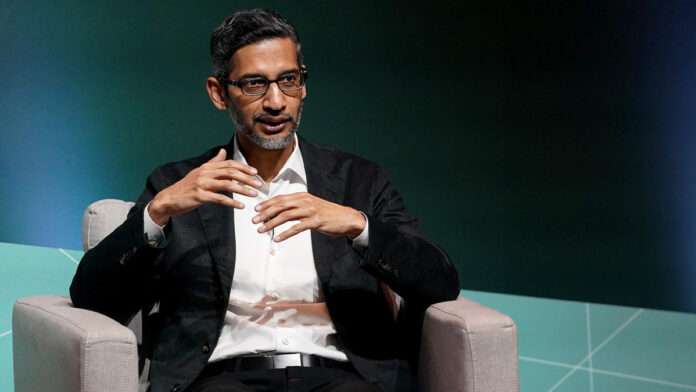Google CEO Predicts a Profound Shift in Search by 2025. Google’s CEO, Sundar Pichai, recently shed light on the future of Google Search during an interview with Andrew Ross Sorkin at the New York Times DealBook Summit. Pichai revealed that 2025 will mark a transformative era for search technologies, emphasizing the role of artificial intelligence (AI) and addressing the concerns of web content creators.
A Vision for the Future of Search
Pichai described the current moment as the “earliest stages of a profound shift” in how users engage with online search. As the digital landscape evolves, he emphasized Google’s leadership in AI development, which continues to shape the broader tech ecosystem. Many groundbreaking AI advancements, such as transformers, originated from Google’s research and later became foundational for the entire AI industry. Without these innovations, Pichai suggested, the AI sector would not have reached its current prominence.
AI: The Backbone of Search Evolution
At the core of this anticipated change is artificial intelligence. Over the years, Google has pioneered AI-driven solutions that have revolutionized search algorithms, enabling smarter, faster, and more relevant results for users. By 2025, the integration of AI technologies is expected to redefine how users interact with search engines, potentially incorporating more conversational and context-aware features.
Google’s contributions, including the development of open-source AI frameworks, have not only positioned it as a leader but also fostered innovation across the industry. Competitors and collaborators alike benefit from these shared advancements, underscoring Google’s influence on the global AI landscape.
The Challenge of Balancing Innovation and Content Ecosystems
While Pichai remains optimistic about the future of search, he acknowledged concerns about the impact on the web ecosystem. Content creators, who rely heavily on search visibility to drive traffic and revenue, have raised questions about how emerging AI tools might disrupt traditional models.
The shift toward AI-powered search could lead to significant changes in how information is presented and accessed. For instance, enhanced AI may summarize content directly on search result pages, potentially reducing clicks to individual websites. Pichai’s remarks highlighted the need to balance user convenience with the interests of content creators, ensuring a thriving and equitable online environment.
Google’s Role as a Default Leader in AI
During the interview, Pichai addressed questions about Google’s dominant position in the industry. Critics often argue that Google enjoys an unchallenged status as the “default winner” in search technology. However, Pichai reframed this narrative, pointing to the company’s unparalleled contributions to AI innovation. By sharing foundational research openly, Google has catalyzed progress across the tech sector, enabling the rise of numerous AI-powered startups and applications.
This leadership position, Pichai argued, is not a matter of default but the result of sustained investment, groundbreaking research, and a commitment to pushing technological boundaries.
What This Means for Users and Businesses
The profound changes anticipated in Google Search by 2025 will have far-reaching implications for both users and businesses. For users, AI-driven advancements promise more intuitive and personalized search experiences. Features like real-time language translation, predictive queries, and dynamic content recommendations could become standard.
For businesses and content creators, the transformation presents both opportunities and challenges. Companies will need to adapt their strategies to remain visible in an AI-enhanced search ecosystem. Understanding how AI interprets and ranks content will be critical to maintaining a competitive edge.
Preparing for the Future
As the digital world gears up for this monumental shift, stakeholders must stay informed and proactive. Content creators should explore emerging tools and techniques to optimize their visibility in an AI-driven search environment. Similarly, businesses should invest in understanding how evolving algorithms may influence their digital presence.
For Google, maintaining trust and transparency with users and partners will be essential. The company’s ability to balance technological progress with the needs of the broader web ecosystem will ultimately determine the success of its vision for 2025.
Conclusion
Sundar Pichai’s insights into the future of Google Search underscore a transformative era for the tech industry. With AI at the forefront, 2025 promises groundbreaking innovations that will redefine how people interact with information. However, the journey also demands careful consideration of the web ecosystem’s sustainability.
As Google continues to lead the charge in AI and search technologies, the onus is on all stakeholders to adapt, innovate, and thrive in this rapidly evolving landscape.



